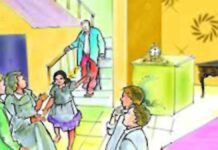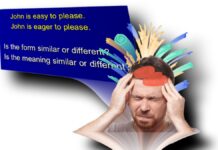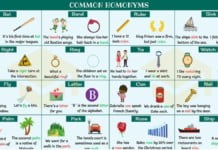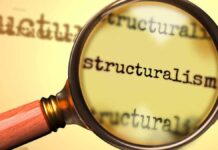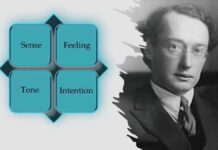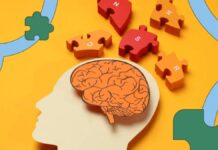A verb is a word that expresses an action, existence, or state of being. Verbs are a fundamental part of speech in English grammar and can inform us about what someone or something is doing, experiencing, or existing. Verbs are crucial in effective communication as they dictate the meaning and structure of a sentence. Correctly understanding verbs makes it easier to accurately convey thoughts and ideas, which can result in misunderstandings and clarity. Therefore, a thorough understanding of verbs is essential to become proficient in any language.
Examples of verbs in different contexts include “run,” “eat,” “read,” “think,” “love,” “create,” “sing,” and “dance.” In the sentence “John reads a book,” “reads” is the verb indicating John’s action. In the sentence, “Ann is a teacher,” “is” is a linking verb indicating Ann’s state of being.
Verbs are crucial in sentences and language as they express actions, states of being, and relationships between elements. They provide the necessary information about what a subject is doing or experiencing, allowing us to communicate effectively. Understanding the role of verbs in constructing sentences helps us accurately convey meaning and our thoughts and ideas to others. By exploring the definition and explanation of verbs, we can gain a deeper insight into their significance and enhance our overall language proficiency.
Verbs can be used in various tenses, such as present, past, and future, to indicate the time of an action or state. Additionally, verbs can be conjugated to match the subject and number, further adding to the complexity of their usage. By studying and practising different verb forms and their use, we can become more adept at constructing grammatically correct and meaningful sentences.
Action Verbs
These verbs describe physical or mental actions. For example, “run,” “jump,” “think,” and “write” are action verbs. They show what someone or something is doing.
State Verbs
State or stative verbs express a state of being or a condition rather than an action. Examples include “be,” “seem,” “feel,” and “belong.” These verbs describe a state of existence, emotion, or possession.
Transitive and Intransitive Verbs
Verbs can be classified as transitive or intransitive based on whether they require an object to complete their meaning. Transitive verbs require a direct object (E.g., “She eats pizza”), while intransitive verbs do not (E.g., “He sleeps”).
Regular and Irregular Verbs
Verbs can be categorized as regular or irregular based on how they form their past tense and past participle. Regular verbs follow a predictable pattern (E.g., “walked” for the past tense of “walk”), while irregular verbs have irregular forms (E.g., “went” for the past tense of “go”).
Auxiliary (Helping) Verbs
These verbs are used alongside the principal verb to form verb tenses, questions, negations, and other grammatical structures. Common auxiliary verbs include “be,” “have,” and “do.”
Modal Verbs
Modal verbs express necessity, possibility, permission, or ability. Examples include “can,” “may,” “must,” “should,” and “might.”
Linking Verbs
Linking verbs (E.g., “is,” “am,” and “are”) connect the subject of a sentence to a subject complement, which describes or renames the subject. They do not show action but establish a relationship between the subject and its description.
Phrasal Verbs
Phrasal verbs consist of a main verb and one or more particles (E.g., prepositions or adverbs). The meaning of a phrasal verb often cannot be deduced from the individual words. Examples include “give up” (to quit) and “run into” (to encounter unexpectedly).
Remembering that every complete sentence in English must contain a verb is crucial. Also, subject-verb agreement rules state that verbs must match their subjects in number.











